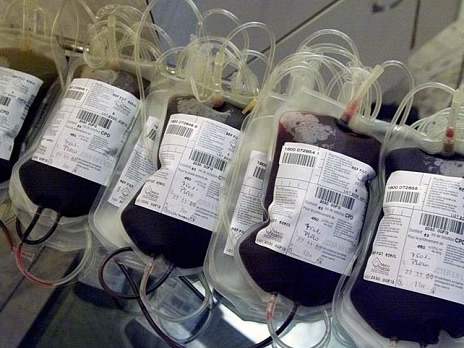 The World Health Organization (WHO) is calling for increased and regular blood donations from voluntary unpaid donors in order to save millions of lives globally each year.
The World Health Organization (WHO) is calling for increased and regular blood donations from voluntary unpaid donors in order to save millions of lives globally each year.
In a statement ahead of World Blood Donor Day on June 14, the WHO said transfusion of blood and blood products help patients suffering from life-threatening conditions to live longer and maintain a higher quality of life.
It also helps support complex medical and surgical procedures.
“The best way to guarantee a safe and adequate supply of blood and blood products for transfusion is to have a good supply of regular donations by voluntary unpaid blood donors,” Dr Margaret Chan, WHO Director-General said.
“The WHO encourages all Member States to obtain all their blood supplies from such donors,” a statement issued by the WHO and copied to the Ghana News Agency on Friday said.
The theme of this year’s campaign “Thank you for saving my life” encourages donors all over the world to donate blood voluntarily and regularly.
The statement said transfusion had an essential life-saving role in maternal childcare and during man-made and natural disasters.
It said severe bleeding during pregnancy, delivery or after childbirth is the single biggest cause of maternal death.
The statement said of the 289 000 women who died in childbirth in 2013, due to complications in pregnancy and childbirth, 27 per cent were due to severe bleeding.
It said the need for blood and blood products was increasing every year and in many countries, particularly low and middle-income countries, demand exceeds supply and blood services find it hard to make sufficient blood available, while also ensuring its quality and safety.
The statement said in 2012, nearly 108 million blood donations were collected worldwide and almost half of these were collected in high-income countries, home to just 15 per cent of the world’s population.
It said WHO estimates that a minimum of 10 donations of blood per 1000 population indicates there is general availability of blood in a country for transfusion.
Yet, in the Organization’s most recent survey on blood safety and availability, 75 countries reported collecting fewer donations.
It observed that the percentage of blood donations from voluntary unpaid donors has been increasing over the last decade and 73 of the world’s countries now collect over 90 per cent of their blood supply from such donors.
It said more progress was needed, with 72 countries (eight high-income countries, 48 middle-income countries and 16 low-income countries) still collecting more than 50 per cent of their blood supply from paid donors or replacement donors, which affects safety and adequate supply of blood and blood products.
The statement said replacement donors were often family members or friends who replenish blood used from a blood bank by a particular patient.
“Blood collection from voluntary, unpaid donors, whose blood is screened for infections, is the cornerstone of a safe and sufficient blood supply in all countries,” said Dr Hernan Montenegro, Coordinator for Services Organization and Clinical Interventions Unit in the Department of Service Delivery and Safety at WHO.
“More voluntary blood donors are needed to meet the increasing needs and to improve access to this life-saving therapy.”
The statement said China would host the World Blood Donor Day global event on 14 June at the Shanghai Blood Centre, which is also the WHO Collaborating Centre for Blood Transfusion Services in China.
Source: GNA























